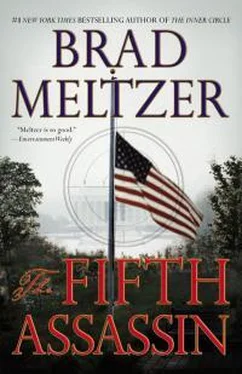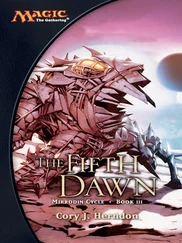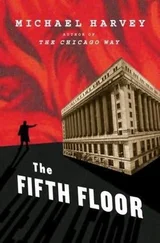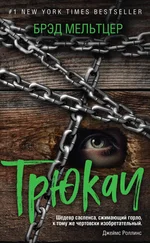Moving closer, the Knight glided past a glass case, never glancing at its beautiful collection of fifty antique crosses mounted on red velvet.
“ You can’t do this! God will never forgive you! ” the rector pleaded.
The Knight stepped toward him, taking hold of the rector’s shattered shoulder. Under the mask, he rolled a butterscotch candy around his tongue. From his belt, he pulled out a knife.
One side of his blade had the words “Land of the Free/Home of the Brave,” etched in acid, while the other side was etched with “Liberty/Independence.” Just like the one his hero had over a century ago.
Taking a final breath that gave him a sense of weightlessness, he clenched his butterscotch candy in the vise of his back teeth.
“W-Why’re you doing this?” the rector pleaded as the sirens grew deafening.
“Isn’t it obvious?” The Knight raised his knife and plunged it straight into the rector’s throat. The butterscotch candy cracked in half. “I’m getting ready for the President of the United States.”
2
There are stories no one knows. Hidden stories.
I love those stories. And since I work in the National Archives, I find those stories for a living. But at 7:30 in the morning, as the elevator doors slide open and I scan the quiet fourth-floor hallway, I’m starting to realize that some of those stories are even more hidden than I thought.
“Nothing?” Tot asks, waiting for me outside our office. The way he’s rolling his finger into his overgrown beard, he knows the answer.
“Less than nothing,” I confirm, holding a file folder in my gloved open palms and double-checking to make sure we’re alone.
Aristotle “Tot” Westman is my mentor here at the Archives, and the one who taught me that the best archivists are the ones who never stop searching. At seventy-two years old, he’s had plenty of practice.
He’s also the one who invited me into the Culper Ring.
The Ring was started by George Washington.
I know. I had the same reaction. But yes, that George Washington.
Two hundred years ago, back during the Revolutionary War, Washington built his own private spy ring. Not only did it help him win the war, but it helped protect the Presidency. The Ring still exists today, and now I’m a part of it.
“Beecher, you knew he wasn’t gonna make it easy.”
“I’m not asking for easy ; I’m looking for possible . It’s like there’s nothing to find.”
“There’s always something to find. I promise.”
“Yeah, you’ve been making that promise for two months now,” I say, referring to how long it’s been since Tot and I started coming in at 7 a.m.—before any of the other archivists show up—privately digging through every presidential file we can find.
“What’d you expect? That you can look under P and find everything you need for Evil President ?” Tot challenges.
“Actually, Evil President would be filed under E.”
“Not if it’s his first name. Though it does depend on the record group,” Tot clarifies, hoping the bad joke will lighten the mood. It doesn’t. “The point is, Beecher, we know the hard part: We know what Wallace and Palmiotti did; we know how they did it; and when they were done with their baseball bat and razor-sharp car keys, we even know they put a young man into a permanent coma and left him to die. Now all we have to do is prove it. I’m thinking we should start picking up the pace.”
As Tot says the words, he runs his fingertips down the metal strands of his bolo tie, which he doesn’t realize is as socially extinct as the Scottsdale boutique where he bought it back in 1994. The thing is, I know Tot. And I know that tone.
“Why’d you just say we need to pick up the pace?” I ask.
At first, Tot stays quiet, rechecking the hallway.
“Tot, if you know something…”
“One of our guys,” he begins, using that phrase he saves for when he’s talking about other members of the Culper Ring. “One of them spoke to someone in the Secret Service, asking what they knew about you. And y’know what the guy in the Service said? Nothing. Not a sound. You know what that means, Beecher?”
“It means they’re worried about me.”
“No. It means the President already knows how this ends. All he’s doing now is working on his cover story.”
Letting the words sink in, Tot again rechecks the hallway. I tell myself the proof is still in the Archives… somewhere… in some file. It’s no small haystack.
The National Archives is the storehouse for the most important items in the U.S. government, from the original Declaration of Independence to Jackie Kennedy’s bloody pink dress… from Reagan’s original “Evil Empire” speech to the tracking maps we used to catch and kill bin Laden. Over ten billion pages strong, we house and catalog every vital file, record, and report that’s produced by the government.
As I always say, that means we’re a building full of secrets—especially for sitting Presidents, since we store everything from their grade school report cards, to their yearbooks, to, the theory goes, old forgotten medical records that might prove what President Wallace really did that night twenty-six years ago.
“Have you thought about ordering his marathon files?” Tot asks.
“Already did. That’s what came this morning.”
For two months now, we’ve sifted through every puzzle piece of President Wallace’s medical history, from back in college when he was in ROTC, to the physical exam he took when his daughter was born and he bought his first insurance policy, to the X-rays that were taken back when he was just a governor and he ran the Marine Marathon despite having a hairline fracture in his foot. That fracture brought Wallace national attention as a politician who never quits. We were hoping it’d bring us something even better. Yet like every medical document related to the President, everything comes back empty, empty, empty.
“He can’t hide it all, Beecher.”
“Tell that to FDR’s medical records,” I reply. Tot doesn’t argue. Back in 1945, forty-eight hours after Franklin Delano Roosevelt died, his medical records were stolen and destroyed. No one’s found them since.
“So if Wallace’s marathon X-rays were a bust, what’s that ?” Tot asks, pointing to the file folder that I’m still holding in my open palm.
“Just something I pulled from our Civil War records. A letter from Abraham Lincoln’s son talking about his years in the White House.” Tot knows that when I’m nervous, I like to read old history. But he also knows that nothing makes me more nervous than the most complex history of all: family history.
“Your mom called while you were down there, didn’t she?” Tot asks.
I nod. After my mom’s heart surgery, I asked her to call me every morning to let me know she was okay. My father died when I was three. Mom is all I’ve got left. But as always, it wasn’t my mom who called. It was my sister Sharon, who lives with and takes care of her. Every two weeks, I send part of my check home, but it’s Sharon who does the real work.
“Mom okay?” Tot asks.
“Same as always.”
“Then it’s time to focus on the problem you can actually deal with,” Tot says, motioning toward the main door to our office and reminding me that whatever President Wallace is planning, that’s where the real damage will be done. But as we step inside and I spot two men in suits standing outside my cubicle, I’m starting to think that the President’s even further along than we thought.
“Beecher White?” the taller of the two asks, though the way his dark eyes lock on me, he has the answer. He’s got a narrow face; his partner has a wide one that he tries to offset with a neatly trimmed goatee. Neither looks happy. Or friendly.
Читать дальше











